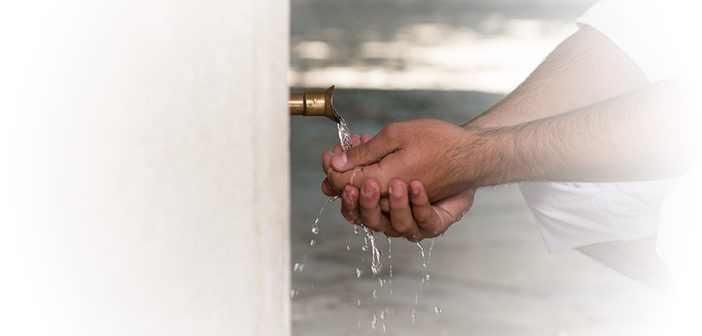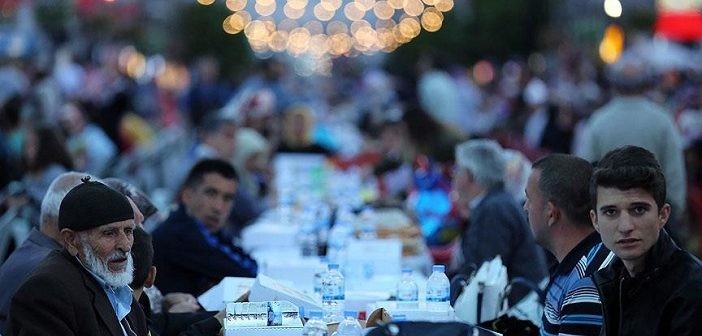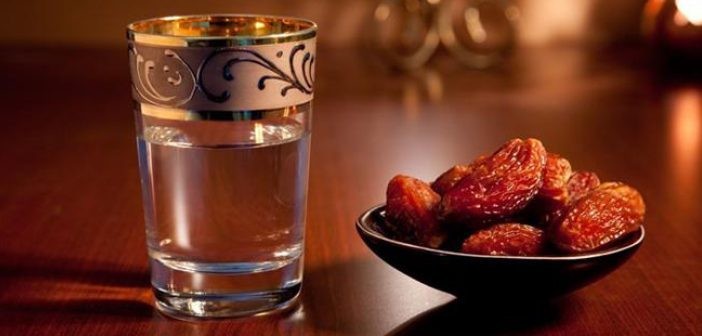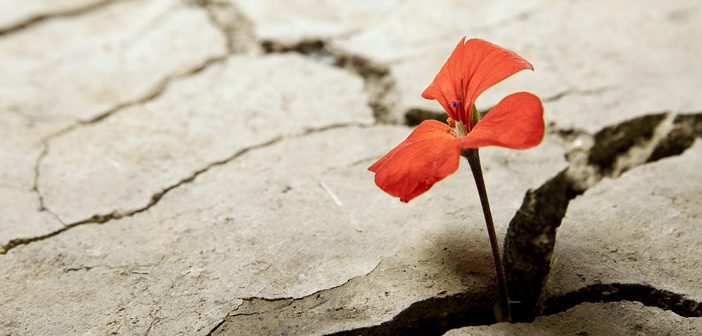
All About Ablution And Cleanliness in Islam
Explain the importance that Islam gives to cleanliness. From a cleanliness perspective, how many types of water are there? Explain the virtue of wudu. Explain the fardhs of wudu, its sunnahs and the rules of good manners. How is wudu performed? What are the makruh and the things that invalidate wudu? What can a person without wudu not perform? How is masah performed over socks? In what situations is masah performed over dressings? What is ghusl and what are the situations that require ghusl? What cannot be performed in the situations of impurity? What are the fardhs of ghusl and the main sunnahs? How is ghusl performed? How do the owners of excuses act? What are the specific conditions of women? What is tayammum, what are the fardhs of tayammum and its sunnahs? How is tayammum performed? In which situations is tayammum performed?
Topics:
- Cleanliness and its importance in Islam
- Water in relation to cleanliness
- The virtue of wudu
- The fardhs, sunnahs and etiquettes of wudu
- How wudu is performed
- The makruhs of wudu, the things that invalidate wudu
- Things that cannot be performed without wudu
- Performing masah on socks
- Performing masah on bandage
- Ghusl
- The fardhs of ghusl, its sunnahs and how it is performed
- The status of those with excuses
- Conditions specific to women
- The fardhs of tayammum, its sunnahs and how it is performed
- The things that invalidate tayammum
- Environmental cleanliness (Reading)
CLEANLINESS AND ITS IMPORTANCE IN ISLAM
Islam has been founded upon cleanliness. To be a Muslim means to be a clean person. Those that are clean are loved by both Allah and people. Our supreme Lord commands the following in the holy Qur’an; “Indeed, Allah loves those who are constantly repentant and loves those who clean themselves.” [38]
To be one of the loved ones of Allah, we must pay attention to cleanliness. Our beloved Prophet expressed the importance that our religion attaches to cleanliness stating; “Cleanliness is half of faith.” [39]
Muslims find themselves in the presence of Allah while performing prayer. Our bodies, clothing and the place of prayer must be clean in order to appear in Allah’s presence. Our religion has placed great importance on internal cleanliness. Just as our body must be clean, our heart and spirit must also be clean.
WATER IN RELATION TO CLEANLINESS
There are two types of water:
- a) Pure water:
This is water coming from rain, snow, lakes, rivers, seas, springs and wells. Nothing has been mixed with this water.
- b) Restricted water:
This is water that is mixed with other substances such as rose water and grape water. Wudu and ghusl ablutions cannot be performed with this type of water.
From a cleanliness perspective, pure water is split into five parts:
1) The water which is both clean and cleansing and usage of which is not makruh:
This is water where their color, taste and smell remains unspoilt, and that their original structure has not been altered and that they have never been used. This water can be used for all types of cleaning. Wudu and ghusl can be performed with it and it can be used for cooking and drinking.
2) The water which is both clean and cleansing but usage of it is makruh:
This is water that is left over from domestic animals such as cats and chickens and predatory birds like hawks and falcons. When there is other clean water, it is makruh to perform wudu and ghusl and to use these waters for drinking and cooking. When there is no other clean water, it is not makruh to use this type of water.
3) Water that is clean itself but does not cleanse:
These are already waters used for wudu and ghusl. You cannot perform wudu or ghusl with this used water once more.
4) Water that is not clean:
This is non-flowing water in which faeces has dropped. The leftover water from dogs, pigs and other predatory animals is not clean and cannot be used in any cleaning process.
5) Suspect water:
These are leftover waters from donkeys and mules. You can wash dirt with such water. You cannot perform wudu or ghusl while there is other clean water available. If there is no other water available, you can perform wudu, ghusl with water and then perform tayammum. This is because we do not know whether these waters are clean or not and so their cleanliness is uncertain.
THE VIRTUE OF WUDU
Wudu is cleansing by washing and performing masah on specified organs in an appropriate manner. Our beloved Prophet has stated the following in relation to the virtue of wudu and its spiritual benefits:
“When a Muslim washes his hands in the course of wudu, the sins that he committed with his hands are forgiven; when he washes his face, the sins that he committed with his eyes; when he performs the masah on his head, the sins that he committed with his ears; when he washes his feet, the sins that he committed whilst walking with his feet are forgiven.” [40]
“When one of you performs wudu completely, the eight gates of paradise opens and you may enter through the one that you wish if you say after wudu: “Ash-hadu an la-ilaha illallahu wahdahu la sharika lah wa ash-hadu anna Muhammadan abduhu wa Rasuluh.”[41]
Wudu has many benefits for our health. Muslims who perform wudu wash their organs continually because of the dirty contact of their surroundings. This protects them from many illnesses.
THE FARDHS OF WUDU
The fardhs of wudu are four:
- 1) To wash the face once,
- 2) To wash the arms including the elbows once,
- 3) To perform the masah (wiping with wet hands) on one quarter of the head,
- 4) To wash feet together with heels once.
Wudu will not be valid if one of these fardhs are incomplete.
THE SUNNAHS OF WUDU
1) Saying the niyyah (intention) to perform wudu,
2) To commence wudu with the Audhu Basmala,
3) Firstly, to wash the hands up to the wrists,
4) To brush the teeth with a miswak (tooth-stick), a brush, or rub with fingers,
5) To wash the limbs in wudu consecutively, one organ should be washed before the other dries,
6) All limbs that are washed must be rubbed thoroughly,
7) To sip water into your mouth three times and then empty it,
8) To rinse the mouth thoroughly with water when you are not fasting,
9) To sniff water into the nose three times and to blow it out each time with the left hand, (To thoroughly sniff water into the nose when not fasting)
10) To make sure that the order of washing the wudu limbs and masah is in accordance with the above mentioned order,
11) To wash all required organs three times,
12) To always commence washing in wudu with the right side,
13) To commence with the fingers when washing the hands and feet,
14) To comb the beard with one’s fingers for those that have thick beards,
15) To move the ring on one’s finger,
16) To perform the masah of the two ears,
17) To perform the masah of the neck,
18) To perform the masah over the whole head,
19) To separate and space out all fingers and toes.
THE ETIQUETTES OF WUDU
1) To perform wudu and be ready for prayer prior to the prayer time,
2) To turn toward the qiblah whilst performing wudu,
3) To sit at a high place,
4) Not to ask others for assistance whilst performing wudu,
5) Not to talk unless compelled to whilst performing wudu,
6) Not to waste wudu water by using too much, and not to use as little water as possible so the water does not flow off the wudu organs,
7) To recite the kalimah al-shahadah by facing the qiblah after wudu.
HOW TO PERFORM WUDU
Firstly, turn towards the qiblah if possible. State your intention by saying “I intend to perform wudu for the consent of Allah” and recite “Audhu billahi minash shaitanir rajeem, Bismillahirrahmanirrahim.”
Then, in order:
Wash your hands up to the wrists three times, if there is a ring on a finger then move it to ensure that the area under the ring is washed.
After this, sip water into your mouth three separate times from your right palm rinsing it properly on each occasion. Once again, with your right palm, sniff water into your nose three separate times and clean your nose with your left hand by blowing it.
Then, wash your face completely three times. After this, the right arm is firstly washed three times together with the elbows and then, the left arm is washed together with the elbows three times.
After this, the hands are wet with new water; the masah is performed with the inside of the right hand by wiping the top of your head. The hands are then wet and the masah is performed on the insides of the ears with the index fingers and the outside of the ears with the thumbs. With the back of the three remaining fingers, the masah is performed on the back of the neck.
After this, firstly the right foot and then the left foot together with the ankles are washed three times. Whilst washing the feet, it is appropriate to wash the toes starting from the small toe to the big toe on your right foot and then from the big toe to the small toe on the left foot.
We must pay attention to cleaning the toes thoroughly whilst washing the feet.
When wudu is completed, the kalimah al-shahadah is recited by facing the qiblah. The fardh, sunnah and the etiquettes are fulfilled when the wudu is performed like this. There are duas that are recited whilst performing wudu.[42] The wudu would still be complete if they are not recited.[43]
THE MAKRUHS OF WUDU
The makruhs of wudu are the following:
1) To use more water than required,
2) To use less water than normal even though it is not required,
3) To splash the water on the limbs of wudu quickly,
4) To talk unnecessarily whilst performing wudu,
5) To perform wudu in a dirty area.
A person performing wudu should avoid these.
THE THINGS THAT INVALIDATE WUDU
The wudu of a person would be invalidated with the occurrence of one of the following situations:
1) If blood, pus or water is excreted from any part of the body,
2) A mouthful of vomit,
3) When spitting, if half or more than half of the spit is blood,
4) To go to the toilet (to urinate or defecate), to break wind,
5) To faint or be drunk,
6) To laugh whilst performing prayer (laughing outside of prayer does not invalidate wudu),
7) To sleep.
THINGS THAT CANNOT BE PERFORMED WITHOUT WUDU
1) You cannot perform prayer,
2) You cannot touch the holy Qur’an,
3) You cannot perform sajdah al-tilawah,
4) You cannot circumambulate the Ka’bah. (It is wajib to have performed wudu in order to circumambulate the Ka’bah.)
PERFORM MASAH (WIPING) OVER SOCKS
It is sufficient for a person who wears socks (thin-soled boot) after performing wudu to be able to perform the masah over their socks at the following wudu if the socks have not been taken off. This is an ease granted to Muslims by our religion.
Residents (those who are not travelling) can perform masah over their socks during a 24-hour period. After this 24-hour period, the feet must be washed when the next wudu is performed. This period for those that are travelers, in a religious sense, is three days or 72 hours.
The masah is performed over socks as follows:
Once you have reached the stage of washing your feet after performing wudu as described above, you firstly wet your right hand and then with three fingers (with the fingers open), you perform the masah over the socks commencing from the tip of the right foot towards your ankle passing over the heel. Later, you wet the left hand and perform the masah over the left foot as described. The masah is not performed underneath the socks.
Conditions that make the masah acceptable:
The following conditions must be fulfilled in order for the masah to be performed and be lawful over socks:
1) The socks must be worn (after the feet have been washed) at the time of wudu,
2) The socks must cover the heels of the feet. You cannot perform the masah over socks that are below the heel,
3) The socks must be durable enough to withstand walking at least twelve thousand steps or more,
4) There must not be any holes, rips or tears in any sock exceeding the width of three fingers,
5) The socks must be thick enough to stay upright without any tie,
6) The socks must not allow any water to be absorbed in from the outside.
7) There must be a space at the width of at least three little fingers of hand in the front part of the socks
You cannot perform masah over your feet if you have lost the front part of your sock where there is not at least three fingers remaining. You must wash your feet. You must wash both feet even if one sock is partially missing and the other is undamaged. It is not lawful to perform the masah over the undamaged foot alone.
Things that invalidate the masah:
1) The things that invalidate the wudu. For this reason, you will be required to perform the masah over the socks when performing wudu again.
2) If the socks are taken off or removed from the feet. In this case, if the person’s wudu is valid, they only need to wash their feet. Even if only one sock is removed, it is necessary for both feet to be washed. If their wudu is invalid, they need to perform wudu and wash their feet.
3) End of validity of masah. If the validity of masah is over but the wudu is still valid, it is enough to wash just the feet. If the wudu is not not valid, the feet shall be washed while performing wudu.
PERFORM MASAH OVER A BANDAGE
If there is a fracture on any part of the body or there is a bandage as a result of a wound, the bandage should be removed and that part shall be washed when performing wudu or ghusl. It is not required to remove the bandage and wash its bottom if it is harmful to do so. In this situation, wet your hand and perform the masah over the bandage once.
If there is no bandage over a wound where medication is applied, then that part shall be washed as long as it is not harmful to do so. If water will harm it, then do not wash it, rather perform the masah over it. You can abandon this, too if performing the masah is also harmful.
GHUSL
Ghusl is washing the whole body without leaving any part dry.
The situations that require ghusl are:
46) A state of impurity (junub/ unclean body in Islam):
- a) After sexual relations having reached puberty
- b) Excretion of liquid from certain organs of both men and women whether asleep or awake
47) When a woman’s menstruation ends each month
48) When the postpartum period ends after a woman has given birth
It is fardh for people in this situation to perform ghusl. Those who do not perform ghusl cannot:
- a) Perform prayer.
- b) Recite the Qur’an.
- c) Touch the Qur’an.
- d) Circumambulate the Ka’bah.
- e) Enter a mosque unless it is necessary.
Furthermore, women cannot fast during menstruation and the postpartum period.
It is sunnah to perform ghusl even though there is no condition requiring it on jumu’ahs and Eid prayers.
THE FARDHS OF GHUSL
The fardhs of ghusl are three,
1) To sip water into the mouth and rinse up until the throat,
2) To sniff water into the nose and clean it,
3) To wash the whole body (without leaving any dry spots the size of the point of a needle).
THE SUNNAHS OF GHUSL
The main sunnahs of ghusl are the following:
1) To commence ghusl with the Basmala,
2) To state the niyyah (intention) to perform ghusl,
3) To wash and clean beforehand any dirt or filth that may be on the body,
4) To wash the genitals,
5) To perform wudu prior to commencing ghusl,
6) After wudu, begin washing by pouring water three times over the head, then three times on the right shoulder, and three times on the left shoulder. Ensure that the water reaches the whole body each time it is poured.
7) To rub the body while pouring water.
8) To leave washing the feet to the end if water accumulates around the feet.
HOW TO PERFORM GHUSL
First, recite the Basmala and state your intention. Wash your genitalia after washing your hands to the wrists.
After this, sip water in to your mouth from your right palm three times rinsing the mouth thoroughly each time up to the throat. Those fasting must ensure that water does not escape to the throat. Then, sniff water into the nose three times with your right palm and clean your nose by blowing it out each time with the left hand.
After this, perform wudu as explained earlier. After the wudu is completed, begin washing by pouring water three times over the head, then three times on the right shoulder, and three times on the left shoulder. Each time you pour water on yourself, rub the body as far as your hands can reach. Wash the whole body three times without leaving any dry spots the size of the point of a needle.
While washing:
Special attention must be paid to ensure that the bottom of the belly button, the curves inside the ear, the ear piercing holes, between the teeth, moustache, hair and beard are wet. No duas are recited during ghusl, you do not turn towards the qiblah unless you are covered or you should not talk unnecessarily. This is how ghusl is performed conforming to the fardh and sunnah.
A person who is required to perform ghusl can perform it by sipping water into the mouth and nose rinsing it properly and then wetting their whole body by entering running water, the sea or a large pool.
THE STATUS OF THOSE WITH AN EXCUSE
If one of the things that invalidates wudu occurs continuously throughout the time of prayer, it is called an excuse. The person in this situation is called excused person.
If a person’s nose bleeds all the time due to an illness, or blood or any other type of discharge (drops of urine or puss) appear from any part of the body and if the discharge ceases within the time of prayer, wudu is performed and the prayer can be completed.
If the discharge continues throughout the whole time of prayer and there is not a pause long enough for wudu to be performed then, this person is considered to be excused.
If the discharge continues after the time of prayer, a person in this situation should perform the wudu and complete his prayer. A person can continue to perform prayer (such as qada and nafila prayers) within this prayer time period as much as he likes providing nothing else invalidates his wudu besides the continuing discharge.
The wudu of an excused person is invalidated when the time of that prayer expires. For as long as the condition of excuse continues, a person must perform wudu again after the time of prayer commences.
This is an ease that our religion has shown to excused person.
SPECIFIC CONDITIONS FOR WOMEN
There are three specific conditions for women:
1) Menstruation:
A specific state occurs to women when they reach puberty. This is called menstruation. Menstruation occurs every month at specific times and generally continues until the age of 55, or sometimes much earlier than this age.
The menstruation period differs from women to women. The shortest period is three and the longest is ten days. It is not mandatory for there to be continuous discharge during these days. Even if the discharge ceases from time to time, this period is still counted as part of the menstruation. As some things are haram for women during this period, they should know their days of menstruation well and must be careful.
On the days when women have their menstruation, they cannot:
1) Perform prayer,
2) Fast,
3) Recite the Qur’an,
4) Touch the holy Qur’an,
5) Perform the tawaf of the Ka’bah,
6) Enter a mosque,
7) Have sexual relations with their partner.
When the menstruation period ends, it is fardh to perform the ghusl. Women do not need to make-up for the prayers missed during the period of menstruation as Allah the Almighty has absolved them. The fasting that they miss during the month of Ramadan is required as a qada, i.e. performed later on.
2) The postpartum period:
The specific condition of women after giving birth is called the postpartum period.
The postpartum period continues for a maximum period of forty days after childbirth. There is no limit for the minimum time. It can end prior to forty days. In this case, women can continue their worship after performing ghusl. They do not have to wait for the completion of the forty days. If the discharge ceases and then continues during the days of postpartum, this period is counted towards the days of the postpartum period.
The things that are haram during the menstruation period are also haram during the postpartum period.
It is fardh to perform ghusl after the postpartum period is finished. The prayers that are missed during the postpartum period are not required to be performed later but the fasting that was missed must be made-up by qada.
3) Istihaza:
If the discharge lasts less than three days, this is not the menstruation period; rather it is counted as an excuse for women. Discharge that continues for more than ten days or a postpartum period that continues for more than forty days or discharges that appear whilst pregnant are also considered like that. This condition is called istihaza.
In such situations, women perform prayer and fast. This is because these conditions are not menstruation or postpartum periods. It is considered a medical condition like a nose bleed.
TAYAMMUM
State your intention, place your hands on the clean earth, or on something of a similar nature, and then perform the masah over the face and arms. This is called tayammum. If you are unable to find water to perform wudu or ghusl, tayammum is performed in the place of wudu and ghusl.
THE FARDHS OF TAYAMMUM
The fardhs of tayammum are two:
1) To state the intention,
2) To strike your hands twice on clean earth or on something of a similar nature. After the first time you perform the masah over the face and then the arms the second time.
THE SUNNAHS OF TAYAMMUM
- To firstly recite the Basmala,
- To observe the order,
- To perform it consecutively without pausing,
- Firstly rub the hands forward when you strike the earth,
- Then, rub the hands back,
- To keep the fingers apart,
- Shaking the dust off by hitting the hands together if they are dusty when raised.
HOW TO PERFORM TAYAMMUM?
State your intention for the tayammum. With your fingers apart, strike your hands on clean earth or on something of a similar nature once. If the hands are overly dusty, then shake them off by hitting them together slightly.
Then, the masah is performed once over the face with the inside of the hands.
The hands are then hit on the earth again. The masah is then performed firstly with the left palm over the right arm together with the elbow. Then, perform the masah with the right palm over the left arm together with the elbow.
THE THINGS THAT INVALIDATE TAYAMMUM
1) The things that invalidate wudu also invalidate tayammum.
2) The tayammum is invalidated if water is found to perform wudu and ghusl.
3) If a person needs to perform tayammum because water cannot be touched on the body due to a wound or excuse, the tayammum is invalidated when the excuse is removed.
IN WHICH SITUATIONS IS TAYAMMUM PERFORMED?
1) When there is not enough clean water to perform wudu or ghusl,
2) In situations when there is water but it is not possible to use this water,
3) When all of the body or most of it has wounds and it is harmful to use water in these situations.
In order to perform worship, tayammum is an ease endowed to our beloved Prophet and to us Muslims by Allah the Almighty.
READING:
Environmental Cleanliness
Cleanliness does not only consist of our bodies, our clothes or inside our houses. The range of cleanliness in our religion is much broader. Environmental cleanliness not only concerns us but other people as well. Polluting the environment and disturbing others mean to harm other people. However, a Muslim is a person who does not harm others or hurt any living things.
Our Prophet has ordered that the surroundings of our houses must be cleaned by stating, “Clean your courtyards.”[44]
It is very bad to pollute a clean environment; it is an ugly behavior and is unbecoming of a Muslim.
Our Prophet stated, “Refrain from being those that have been cursed.”
Thereupon a Companion asked:
“Who are these, oh Messenger of Allah?”
Our Prophet replied:
“Those who pollute the road that the public use and the shady places where they rest.” [45]
Polluting the roads where people travel on, the places where they live and rest and disturbing them is not compatible with the morality of Islam.
A Muslim does not engage in any actions that discomforts other people. They must pay attention to the roads on which they travel back and forth each day ensuring that they are kept clean and well maintained. They must keep public places, parks, gardens and attractions clean and take care of them.
Our Prophet has shown how much importance he placed on the environment by forbidding urinating in still waters. He would personally clean off the spit that he saw on the masjid walls by scraping and removing it with a piece of rock.
Our Prophet did not allow people to spit on the floor, so how is it possible for a Muslim to cause discomfort to other people by polluting the environment? How is it possible that a Muslim could be involved in actions that cause harm to others?
Our Prophet stated: “Whoever eats onions or garlic should stay away from us and our masjids.” [46] Indeed, garlic and onions are halal foods. However, the smell of the mouths of people who eat these, annoys other people. For this reason, we should not eat onion or garlic when going to mosques. If we had eaten them, then we should avoid others and not cause them any discomfort until the smell subsides.
Allah the Almighty commands in the holy Qur’an that He loves those who observe cleanliness. In that case, let us keep our surroundings clean and be one of the servants that Allah loves. People also like others who are clean. Let us try to earn the love of people by paying attention to cleanliness and not their hatred by polluting the environment.
Footnote:
[38] Baqarah, 2/222
[39] Meşariku’l-Envar, Volume 2, Page 107.
[40] Et-Terğib ve’t Terhib, volume 1, Page 155
[41] Ibid., volume 1, Page 171
[42] You can find the duas of wudu at the end of this book.
[43] You can find pictorial instructions of how wudu is performed at the end of this book.
[44] Tirmidhi, Adab
[45] Riyadh us Salihen, Volume. 3, Page. 282
[46] Bukhari, Babu bed’il-Ezan.
Source: Presidency Of Religious Affairs The Turkey, Basics of Islam, Seyfettin Yazıcı










